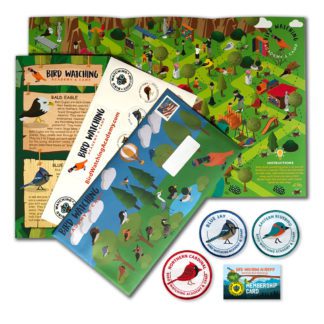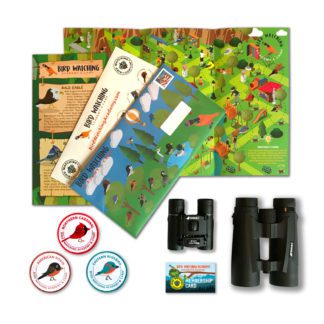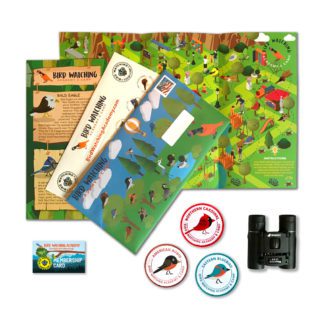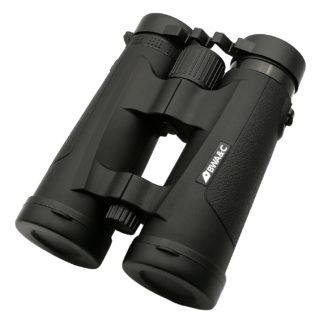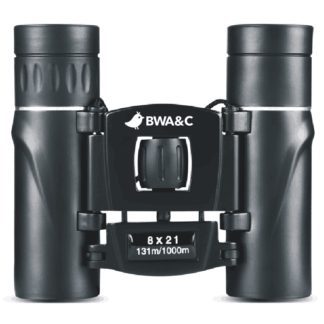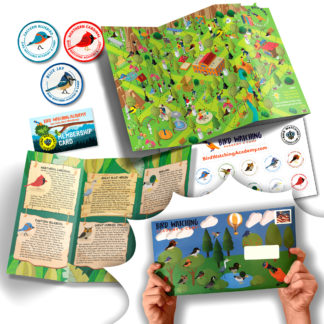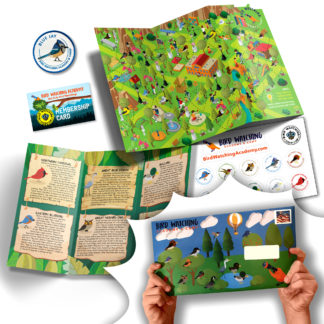
Tamaulipas Crow
A Tamaulipas Crow is a fun bird to see while bird watching. Below are some tips to help you identify Tamaulipas Crows. We have also put together a list of fun Tamaulipas Crow t-shirts, Tamaulipas Crow bird patches, birdhouses, bird feeders, binoculars, stickers, and other fun bird watching items.
About Tamaulipas Crows
This small crow, formerly recognized as the Mexican crow due to its conspecific nature with the Sinaloa Crow, is fundamentally endemic in the dry country of North-Eastern Mexico. It has also been recorded to be a common winter guest, primarily during the non-breeding season, in the South of the United States, South East Texas.
Description and Identification
Tamaulipas Crows are small and lean birds that have completely black plumage. The dark
plumage of these birds is glossed blue, purple, and green. Tamaulipas Crows were earlier
considered to be of the same species as Sinaloa Crow due to the many physical resemblances
between these two species. One major physical feature that distinguishes them from Sinaloa Crows
is the shorter length of their tails. Other than that, these two birds can be distinguished from the
difference in the pitch of their vocalizations. Tamaulipas Crows have strong bills, stout bodies, and
dark brown irises. These birds show no signs of sexual dimorphism as both the sexes look similar.
These birds are about 13-15 inches long. Younglings possess a plumage duller than the adults.
Tamaulipas Crows vocalize low-pitched calls that are very low in volume. Their guttural call has
been described as the soft croaks of a frog. Tamaulipas Crows are also very social birds that almost
always travel in flocks.
Tamaulipas Crow Description
It is a small and sleek crow that measures between 34-38 centimeters in length. Its soft and silky plumage is entirely black with glossy hints of purple around the head and upperparts while the underparts have a bluish-green sheen. In comparison to the Sinaloa Crow, it has a slightly shorter tail and a surprisingly low-pitched voice for a bird of its size.
Tamaulipas Crow Size
Average size of both sexes is;
- Length: 5-39.5 mm
- Mass: 221 g (range 192-237 g)
Tamaulipas Crow Behavior
- This tiny bird usually flies low at about 15m above the ground with quick and firm wingbeats.
- They are very gregarious. However, they can be found in singles, pairs, or small groups even when not breeding.
- They forage mainly by walking on the ground but also do some foraging in trees. This is usually done in flocks except when nesting.
Tamaulipas Crow Diet
They are considered to be omnivorous but their diet is not well known. Their staple food has been found to mainly be insects on the ground and in some instances eggs and nestlings on the trees, as well as fruits and berries.
Tamaulipas Crow Food
Tamaulipas Crows are omnivores who are serious predators. There is very limited information
about their diet. These crows routinely predate nestlings and eggs of white-winged doves.
Tamaulipas Crows have been observed eating carrion, berries, seeds, food scraps in garbage
dumps, grasshoppers, and other insects. Some Tamaulipas Crows that were kept in captivity ate
dog food, fruits like oranges, apples, and grapes, but they refused to eat mealworms and peanuts.
These birds are known to forage at all elevations.
Tamaulipas Crow Habitat
Tamaulipas Crows generally inhabit small towns, villages, and desert scrubs. The birds usually
avoid unbroken forests, mountains, seashores, and extreme desert conditions. More commonly
they are found in open areas and humid woodlands. In Texas, a large number of Tamaulipas Crows
are centered around the Brownsville garbage dump.
The Tamaulipas Crow can be found around desert, scrub, and bushland regions. It also inhabits humid woodland regions. Its range includes farms, villages, and small towns but can never be found in the higher mountains or by the seashores.
Range and Migration

Tamaulipas Crows are small birds that have a very limited range. These crows are endemic to
northeast Mexico, but they have consistently been spotted in southeast Texas. Tamaulipas Crows
are only spotted in Texas outside of breeding season. In recent years very few Tamaulipas Crows
have migrated to Texas.
Tamaulipas Crow Nesting
Tamaulipas Crows have only been observed nesting in Texas. Not much is known about their
breeding behavior. Some of these birds have been seen nesting in loose colonies. Courtship
might include preening the opposite sexes’ feathers, touching bills, and feeding. In most cases,
these birds nest on trees, although the first nest of Tamaulipas Crows that were found in Texas was
out in the open — placed on a framework of steel beams. Both males and females contribute to the
nest-building process. Nests are generally made of plant fibers and sticks, and lined with soft
materials. Tamaulipas Crows lay from 4-5 eggs per clutch that are incubated by the females for
about 17-19 days. Nestlings might take about 30-36 days to become fledglings.
Being gregarious in nature, they are known to nest in loose colonies. Courtship involves two birds perching close to each other and preening their feathers. The nesting site is usually upon a tree and both sexes help build the nest.
Ornithology
Bird Watching Academy & Camp Subscription Boxes
At Bird Watching Academy & Camp we help kids, youth, and adults get excited and involved in bird watching. We have several monthly subscription boxes that you can subscribe to. Our monthly subscription boxes help kids, youth, and adults learn about birds, bird watching, and bird conservation.
Bird Watching Binoculars for Identifying Tamaulipas Crows
The most common types of bird-watching binoculars for viewing Tamaulipas Crows are 8×21 binoculars and 10×42 binoculars. Bird Watching Academy & Camp sells really nice 8×21 binoculars and 10×42 binoculars. You can view and purchase them here.
Tamaulipas Crow T-shirts
If you love the Tamaulipas Crow you should purchase a Bird Watching Academy & Camp T-shirt. To help support bird conservation we donate 10 percent to bird conservation activities.
Tamaulipas Crow Iron On Patches
Kids, Youth, and Adults love to collect our Bird Watching Academy & Camp iron-on patches. Our bird-watching patches help you keep track of the birds you have seen and identified. You can also display the patches on our Bird Watching Academy & Camp banners.
The Tamaulipas Crow is a great iron-on patch to start your collection with. The patches are durable and can be sewn on or ironed on to just about anything.
Tamaulipas Crow Stickers
Stickers are a great way for you to display your love for bird watching and the Tamaulipas Crow. We sell a monthly subscription sticker pack. The sticker packs have 12 bird stickers. These sticker packs will help your kids learn new birds every month.
Bird Feeders for Tamaulipas Crow
There are many types of bird feeders. Here are our favorite bird feeders for your backyard. We use all of these bird feeders currently. Kids will have a great time watching birds eat at these bird feeders. Using this collection of bird feeders will provide a wide variety and many types of birds.
Best Bird Houses for Tamaulipas Crow
There are many types of birdhouses. Building a birdhouse is always fun but can be frustrating. These 4 birdhouses have become our favorites. Getting a birdhouse for kids to watch birds grow is always fun. We spent a little extra money on these birdhouses but they have been worth the higher price and look great.

